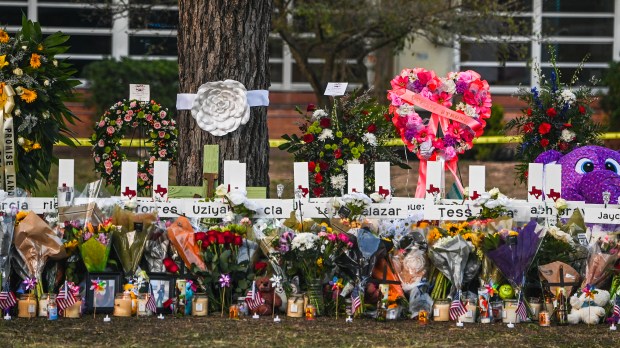Many of us have been on the giving or receiving end of “thoughts and prayers” after something tragic or sad has happened. It’s a simple and quick way we acknowledge others’ pain and communicate our care and concern. Sending “thoughts and prayers” is a way to convey that you’re thinking about someone and standing in solidarity with them; it’s a promise that you are praying for the person or situation.
But in the aftermath of the recent mass shootings in Buffalo, New York, and Uvalde, Texas, there’s been a lot of criticism about posting the sentiment “thoughts and prayers” at times of tragedy. Calling on citizens to act, politicians, influencers, and others on social media have stated that we are “well past the need for thoughts and prayers.” HuffPost reported on students marching across the country with slogans like “Thoughts and prayers are not enough.”
So is using this phrase meaningless? Is it just a convenient way to ignore taking action on what needs to be addressed when it comes to pressing and important issues?
As is so often the case, it’s not an either/or situation, but a both/add.
Prayer and solidarity with brothers and sisters in times of tragedy is essential — and so is action. Prayer and solidarity should lead us to action. If a serious issue like violent gun crime is not addressed on multiple levels, things won’t change. But that doesn’t mean there is no place for prayer — in fact, the most important issues and most terrible circumstances should always be covered in prayer.
For a non-believer, prayer seems useless. But Christians know that prayer is powerful. First, it changes the heart of the one who prays, making us (hopefully) more docile to what God wants us to do. It helps us take the right actions.
Prayer also changes the recipient, especially when they know they’re being prayed for. When we pray for someone we are lifting them up to God, asking for His mercy, grace, and blessing. It can be consoling and healing when you know know that others are praying for you.
And while sending “thoughts” to someone may seem vague and empty to a believer, at its best it’s a sentiment that expresses empathy and a desire to stand with another in their suffering. When we are thinking about another’s suffering, or reflecting on a tragic situation, it may spur more explicit acts of kindness, generosity, and justice.
The bottom line is, sending “thoughts and prayers” is a good thing — so long as it’s genuine and sincere. But given the over-use of the phrase, to make sure your words are received in the best light, try being more specific and personal with your wording. Instead of posting “sending thoughts and prayers,” say something like, “I’m praying for you,” or “I’m offering my Rosary this week for everyone affected by this tragedy,” or ” I’m asking Jesus to comfort all who are grieving right now.” It can also be very meaningful to use people’s names when conveying your prayers.
And then, after you pray, take action. Prayer and action go hand in hand in the Christian life. Prayer should inform and empower our action. So let people know you are thinking about them and praying for them — and then get going.



